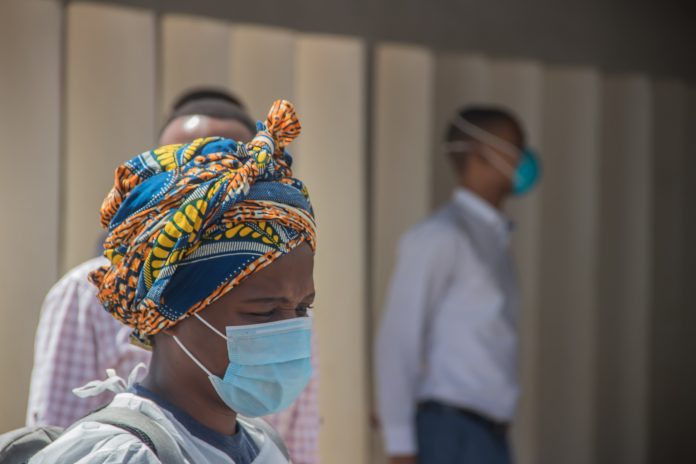Academic Research Scholar Dr Wendy Purcell, places the spotlight on COVID-19 variants and vaccines
COVID-19, an infectious respiratory disease caused by the virus SARS-CoV-2 first recognised in December 2019 with an outbreak in China’s Hubei province, has since spread rapidly across the globe. The World Health Organization (WHO) declared it a Public Health Emergency of International Concern on 30th January 2020 (1) and a pandemic by 11th March 2020. (2) By early 2022, there were 329 million cases and over 5.5 million deaths worldwide, with many millions still suffering severe illness and economic hardship. (3)
With herd immunity thought to require 73 to 84% coverage in a population, (4) the WHO’s World Vaccine Week 2022 needs to call for inclusive access to vaccines to afford everyone the protection against developing COVID-19. This is a public health imperative.
COVID-19 vaccines
Worldwide scientific research by universities and pharmaceutical companies enabled the development of vaccine candidates in record time, with UK regulators the first in the world to grant emergency use authorisation for the Pfizer and BioNTech vaccine in December 2020. (5) Other vaccines have since been approved with vaccination programmes rolled out globally with around 4 billion people vaccinated by January 2022. However, this represents just 50% of the world’s population, and it’s unevenly distributed – over 80% of people in Spain and South Korea are vaccinated while less than 5% are in Nigeria and Uganda.
While already struggling with vaccine distribution, African nations faced further difficulty after South Africa’s discovery of the Omicron variant in November 2021. (6) Within hours of reporting the variant to the WHO, many Western countries announced travel bans on southern African countries, some of which had yet to report a case. Many claimed this revealed continuing discrimination against the continent. These travel bans not only impacted the global fight against the pandemic, with South African scientists unable to import the chemicals needed for their COVID-19 research, they may also have repercussions on governments willingness to share public health information. Rather than close down a country for reporting a new variant, let’s applaud their vigilance and tackle the problem rather than ‘shoot the messenger’.
While public confidence in COVID-19 vaccines is increasing, so-called vaccine hesitancy remains a public health concern. (7) For others, the issue is still one of limited access to vaccines. The current patchwork of global public health measures and vaccination status create an ideal environment for new variants to emerge. While some variants such as Omicron appear to be more contagious, there is nothing yet to suggest they cause worse disease or that they might evade some of the protection afforded by a COVID-19 vaccine. (8) Continuous monitoring for the persistence of immunity post-vaccination and effectiveness against emerging variants of the SARS-CoV-2 virus will require sustained focus and adaptation of vaccination programmes.
COVID-19: New variants emerge
While vaccination offers an important level of protection against the ravages of COVID-19, it’s not a magic cloak of invisibility. As new variants emerge, whether Delta, Omicron or a new Greek letter, we are learning how vaccines developed against the original (the so-called ‘wild type’) are performing – and they are doing quite well.
Those who are double-jabbed or even boosted can still become infected and if so, transmit it to others. (9) However, what’s important is that fully vaccinated persons have outstanding protection against severe illness from COVID-19, essentially bringing the risk of hospitalisation and death to near zero – they are protected. Scientists are busy tweaking the vaccines to tailor them to the new variants and so building up our own personal immunity with boosters may become as routine as an annual flu jab. Will there be COVID-19 cases in the near future? Even as the vaccine programme progresses, there will still be COVID-19 cases in the near future. So, when will this end? Well, there are different sorts of endings with different potential timelines.
One is an epidemiological end when herd immunity is achieved, i.e., when the proportion of society immune to COVID-19 is sufficient to prevent widespread, ongoing transmission. Vaccines are important in achieving herd immunity. Another end is a transition to a form of normalcy where we can resume our routine lives. Here too, vaccination helps. The two ends are related. In some places, we may have to wait on herd immunity to be reached before we can return to normal. However, in those places with effective public health protective protocols – namely, wearing a face[1]covering/mask appropriately, proper hand hygiene and maintaining physical distancing with an ongoing need for contact tracing where appropriate, the end can come before herd immunity is reached. (10)
While the Delta variant was worrying, Omicron, while also extremely transmissible, appears milder so that infections or cases are routine but hospitalisations are generally down. (11) By infecting so many people so quickly, Omicron is also speeding us from a pandemic toward an endemic future (12) where everyone left has some immunity – meaning we’ll be living with rather than dying from COVID-19.
References
(3) https://coronavirus.jhu.edu/ 17th January 2022
(4) https://doi.org/10.1101/2020.07.31.20166298
(8) https://www.cdc.gov/coronavirus/2019-ncov/more/scientific-brief[1]sars-cov-2.html
(11) https://www.theatlantic.com/health/archive/2022/01/omicron[1]mild-COVID-pandemic-reset/621207/











